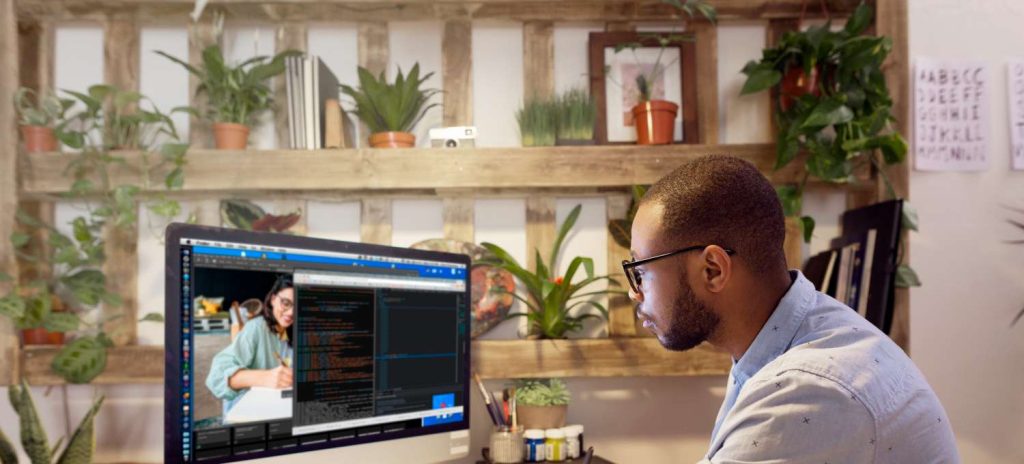
The internet is an incredible tool for mass communication and has changed the world immeasurably during the past thirty years, but it can also be a dangerous place. We’ve uploaded almost every aspect of our lives onto our computers, from our personal photographs to our bank details. So long as those computers are connected to the internet, there’s always a risk that someone else could access them or damage them. This can be done by hacking, but attackers can also do it by placing a virus on a target computer. Sometimes, the two approaches go hand in hand.
The only way to ensure that your computer remains virus-free and your data remains safe are to use anti-virus software and remain vigilant. Far too many people believe that they’re not ‘important’ enough to be targeted because they’re not rich or don’t have any valuable data, but that’s not how things work. To hackers and scammers, stealing personal data is like playing online slots. Everybody understands that they won’t win every time they spin the reels of a UK online casino, but they’ll eventually win something if they spin the reels enough times. We’re not saying that you’re always guaranteed to win more than you lose from online slots because if that were the case, every online slots website in the world would lose money, but there are wins to be had through persistence. That’s the mindset that people who might attack your computer have. They know if they compromise as many computers as possible, they’ll eventually compromise one that has something worthwhile on it.
Unfortunately, it isn’t always easy to tell your computer has been affected or compromised. Your machine might still appear to be functioning normally, and so the attack might not be obvious. There are always tell-tale signs, though, and so if any of the signs we’re about to list sound familiar to you, it’s time to take your computer offline and give it a thorough scan and cleanout.
Slow Performance
All PCs slow down as they get older, but that slowdown usually happens gradually over time. If your computer is suddenly much slower than it was last week, something might be wrong. In fact, there was a major virus attack in 2018 for which sudden slow PC performance was the main symptom. Look for less malevolent causes before assuming you have a virus, though. If you’re running low on hard disc storage space, that will slow your PC down. If you have too many programs configured to launch at startup, that will also have an effect. If neither of those things is true, it becomes more likely that something underhand is going on.
High Internet Usage
You can monitor how much data your computer is downloading from the internet by using Task Manager. If you don’t have any browser windows open and you’re not in the middle of downloading anything, your network activity should be very low. If it isn’t, something is going on that you aren’t aware of. Double-check that Windows isn’t in the middle of downloading an update because that’s sometimes the culprit. If that isn’t the case and you can find no obvious cause, there’s probably something lurking in the background using data for nefarious purposes. You might need a malware scanner as well as an anti-virus program to root it out. Ensure you’re disconnected from the internet when you run the scans.
High Hard Drive Activity
Task Manager can also tell you how much of your hard disc is being used at any one time. If you have no programs open other than Windows itself and Task Manager, that usage should be at a minimal level. If it’s upward of 90% and doesn’t drop no matter what you switch off, you have a problem. Unfortunately, there’s a known error with Windows Defender itself which can occasionally cause high hard disc activity, but you can find out more about that problem and how to resolve it at this link. Try that first, but if that doesn’t work and your hard disc is still very active and running hot, something else must be the cause.
New Pop-Ups
Some of the apps and programs you regularly use on your computer will occasionally generate pop up messages. They might inform you that an update needs to be downloaded or try to persuade you to purchase upgrades. These pop-ups can be irritating, but they’re ultimately harmless. If you see a pop-up you’ve never seen before, though, always be suspicious of where it’s come from. Some virus-induced pop-ups even disguise themselves as notifications from your anti-virus software, which can be confusing. Never trust such a notification unless you can verify it by loading your chosen anti-virus software and finding it in there. While you have it open, run a scan. Programs that generate too many pop-ups ought to be viewed with general suspicion anyway.
Files Going Missing
Every single one of us is guilty of occasionally misplacing or accidentally deleting files no matter how careful we believe we’re being or how well organized our file systems are. It’s just one of those things that happen due to human error. If it happens more than once in a short space of time, though, and you’re positive that you haven’t deleted anything or moved any folders, there’s a chance that it’s been deleted by a malign program. Deleting important files in an attempt to damage your computer or prevent it from running properly is a common goal of virus writers, and when files start to go missing this way, it’s a matter of time until something important gets erased, and you can’t use your system anymore. Take action before that happens.
Conclusion
You don’t have to spend money to solve these problems. Windows Defender is a very efficient anti-virus program, but even if you don’t want to use that, you can download extremely competent free anti-virus software from AVG, Avast, and a host of other companies too. Don’t get complacent, and never ignore a sign that something might not be right. If you think your computer has a virus, pull it offline immediately and don’t reconnect to the internet until you’re positive that it’s safe to do so.


